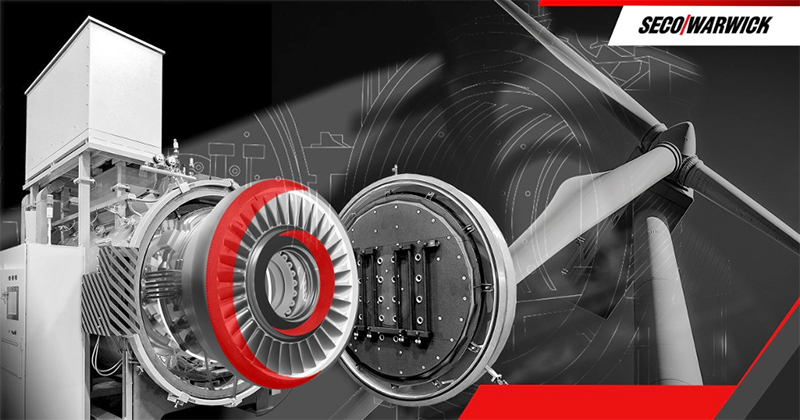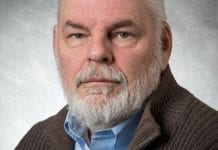
A global manufacturer of wind and gas turbines has chosen a Seco/Warwick vacuum furnace designed for the heat treatment of oversized gas turbine structural components.
This is the eighth Seco/Warwick furnace for this global manufacturer’s European location.
The vacuum furnace on order features a work zone (1,200 x 1,200 x 1,800 mm) that ideally fits the characteristics and needs of the customer, who will be heat treating large-sized parts. Another characteristic feature of this design is the use of three process gases: argon, nitrogen and hydrogen. This solution will serve to increase the process purity and reduce gas consumption costs during the cooling process.
“The demand for gas and wind turbines is systematically growing all over the world, and renewable energy is currently the focus of attention in all industries,” said Maciej Korecki, vice president of the Vacuum Segment, Seco/Warwick Group. “It plays an important role in mitigating climate change, which is why it is important for us to be able to support a partner who focuses on sustainable, renewable, and unlimited green energy. We think similarly at Seco/Warwick, producing furnaces which prove that heat-treatment solutions can be green.”
The report “Renewable Capacity Statistics 2024” published by the International Renewable Energy Agency (IRENA) presented the statistics on renewable energy capacity for 2023. The report indicates that last year a new record was set in the implementation of renewable energy sources in the energy sector, reaching a total capacity of 3,870 GW worldwide. Companies producing gas and wind turbines have more and more orders and therefore face the challenge of modifying their machinery parks and equipping them with solutions which are reliable, efficient, and in line with the spirit of the entire industry – i.e. ecological.
The report summed up last year’s advance in the use of wind energy by documenting an increase of 116 GW (+12.9% y/y), which is a 24 percent share in the expansion of renewable energy sources. China accounted for almost two-thirds of this expansion (+75.9 GW), while wind energy capacity in the United States increased by 6.3 GW.
Manufacturing turbines for the renewable energy industry requires precision. Parts used in the production of gas and wind turbines must operate in harsh conditions, so their quality must be reliable. To ensure the best possible quality of parts processed in the Vector furnace, Seco/Warwick has implemented unique solutions.
“The furnace’s three-gas partial pressure system helps prevent evaporation and sublimation of alloying elements from the load surface during vacuum heat treatment or vacuum brazing,” said Kamil Siedlecki, sales manager at Seco/Warwick. “Partial pressure control is important when processing many materials to prevent the hot zone evaporation and contamination. We also implemented a temperature control system for the housing and internal heat exchanger’s cooling water, the purpose of which is to reduce water condensation from the environment during the furnace loading and unloading operations. This modification shortens the furnace evacuation time after loading, reduces oxidation of the processed load’s surface and degradation of the furnace heating chamber’s internal components. Despite the fact that this system is particularly recommended in countries with high air humidity and high temperatures in the hall, it is commonly used by Seco/Warwick in solutions equipped with a high vacuum system.”
The wind energy sector operates under great pressure to reduce the energy production cost per megawatt-hour. These expectations can be met by improving the turbine design in order to increase their operating parameters and reliability, while reducing maintenance costs.
MORE INFO www.secowarwick.com






















